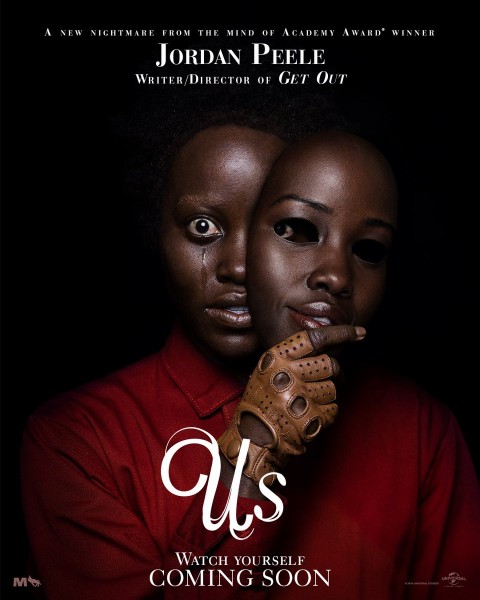‘Us’ Movie Release and Representation of Minorities in the Film Industry

Photo Credits: collider.com
April 15, 2019
The anticipated Jordan Peele movie, ‘Us’, was released March 22nd and has taken the world by storm as a critically acclaimed film. Peele has since been applauded for his tough take on controversial issues. Though people question the diversity of a black cast intertwined throughout the movie, they fail to realize the importance of representation of minorities in the film industry.
The movie includes an African American family whose tranquil beach trip turns into a terrifying nightmare when their doppelgangers appear and begin to terrorize them, as the family must find a way to get out alive. Peele’s take on the film is centered around the idea that “maybe the evil is us”; while our country is busy pointing fingers at each other, “[he wants] to suggest that maybe the monster we really need to look at has our face.”
Peele has expressed his feelings towards casting black actors in his movies and that his interest in casting white actors being little-to-none. “I don’t see myself casting a white dude as the lead in my movie. Not that I don’t like white dudes. But I’ve seen that movie.” Many have vocalized their opinion on the statement made by Peele, including their ultimate displeasure; however, though Hollywood diversity has been improving, representation is still minimal compared to the desired goal. This doesn’t only indicate actors/actresses, but also directors and behind the camera workers. Peele respectfully accomplishes this objective in past movies like, for example, Get Out and BlacKkKlansman, and will not be stopping any time soon with the release of his latest film.
Many movies, or T.V shows, that have been noticed for their evident representation of oppressed communities have either not gotten the recognition deserved or have been canceled. One of the most recent events of this happening has been the cancellation of the hit-televised show, “One Day at a Time.” The show features Penelope, a single, military mother, and her Cuban-American family, as they explore the lifestyle that is living in America while going through life’s up’s and down’s. The show highlights controversial topics and real-life issues, including LGBT+Q, PTSD, depression, anxiety, women empowerment, and immigration. Audiences everywhere raged across the internet after the show got canceled following its third season on Netflix from lack of viewers. Though many fought for the show to be renewed, Netflix failed to bring it back. Movies and TV shows that bring out the awareness of these issues, especially about communities that others may be ignorant about, need the recognition it so blatantly deserves.
The importance of diversity in cinema is reflected through this day in age where if minorities stories aren’t told, it’s assumed that they don’t matter. Many would argue that a few productions here and there that include foreign cast members should be enough to satisfy those who are calling for action; however, nobody fights for the hopes of being “satisfied,” but fight for their desire for being equal and treated like any other human being. Diversity on the big screen shows different communities that they are seen, that their stories matter, and that they exist.
Being a part of the Latina community, productions like Us and One Day at a Time are important to those who feel like they are not yet intertwined with the world’s acceptance. They also shine a light on important topics that, if they weren’t shown on a screen, would be swept under the rug for nobody to talk about. Conversation in this place of time is good to have, especially when those conversations affect the lives of other people. Too many, representation doesn’t matter, but that’s because they never had to worry about the lack of it before. For minorities and different communities to come together to see diversity on the big screen is what inspires future doctors, lawyers, artists, and hard workers to push forth in their journey. The time that representation “doesn’t matter” is the time that we oppress those who could have made a big difference in the world if it did.
